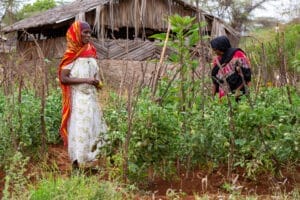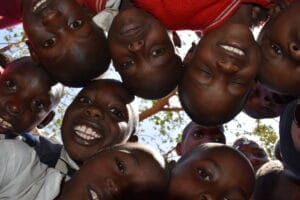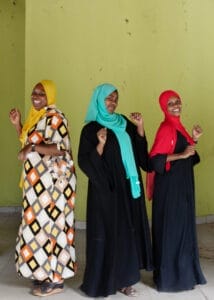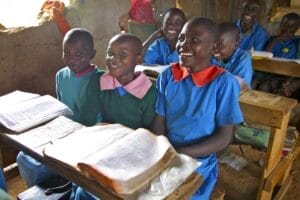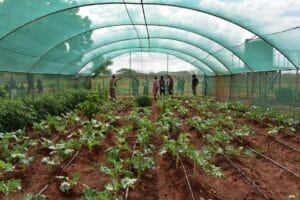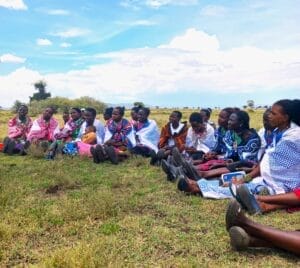
The context In Kenya, despite a favourable gender equality legal framework, serious inequalities between men and women persist, especially in…
Discover moreWeWorld has been present in Kenya since 2009 and continues its 15-year-long commitment alongside the population affected by poverty and inequalities.
While Kenya has the largest, most diversified economy and the second largest population in East Africa, its economic and development trajectory are impaired by weak governance and corruption. At the same time, the country also has ambitious and well-educated youth, eager to contribute to the growth of the country. Nevertheless, unemployment and under-employment are extremely high, affecting about 40% of the population who is therefore exposed to extremism, crime and marginalization.
Agriculture remains the backbone of the Kenyan economy. Among a population of over 50 million people, around 75% work at least part-time in the agricultural sector. Hence, the exposure of most of the population to the effects of drought and climate change is evident, and it easily translates into food insecurity for the most vulnerable groups, especially young mothers and children.
Kenya is a fast-growing country which faces huge disparities across its national territory, leaving behind the poorest and marginalized communities. Although the country has undertaken several reforms, women and youth have limited access to resources and their inclusion in the economic and social spheres, spelled out in policies, remains intangible in their daily lives.
As WeWorld, in partnership with local and international organizations, as well as national institutions and ministries, we are present in the Counties of Narok, Isiolo, Migori, Homa Bay and Kwale. In these regions we implement projects in the areas of promotion of access to basic education, maternal and child healthcare, water and sanitation services, food security and livelihoods, sustainable agriculture production in arid and semi-arid lands, prevention of conflicts and peacebuilding. A multi-stakeholder involvement, from the grassroots communities to the duty bearers, is key to our strategy, alongside an integrated Nexus approach to ensure the sustainability of our interventions, which are complementary to the strategies outlined in attaining Kenya Vision 2030 and contribute to achieving the respective SDGs.
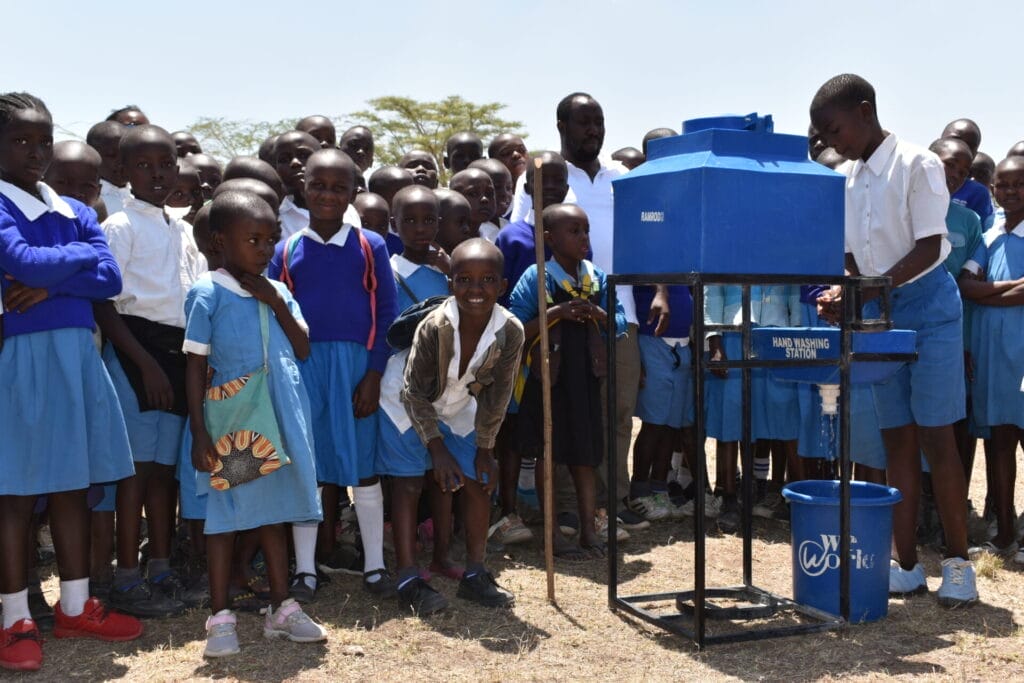
For what concerns the education-related interventions, we contribute in different Counties to the realization of equitable quality education, children’s good health and well-being, and focus on supporting students’ performance, retention, and transition, while safeguarding their rights.
In Migori and Homa Bay Counties, we are present since 2011 in 19 pre-primary primary and junior secondary schools, reaching around 18,000 direct beneficiaries among students, teachers, caregivers, and the Child Protection Committees. We have also disseminated and followed up on the Early Childhood Development (ECD) policy reform and the School Health Policy, and linked schools with health facilities of competence, to better monitor the health of the children.
In Narok County, we are present since 2016 in 28 pre-primary, primary and junior secondary schools, reaching around 23,000 direct beneficiaries among students, teachers, caregivers, and Child Protection Committees. Here, we have disseminated the Kenya National Education Sector Strategic Plan (NESSP 2018-2022), reaching out to County level officials in a bid to support effective decision making, planning, monitoring, and management of the education sector in Narok. In a county inhabited by the Maasai, we are at the forefront of the fight against Female Genital Mutilation and in promoting a culture that has no negative impact on young Kenyan women. WeWorld is committed towards ending early marriages, teenage pregnancies, and child abuse.
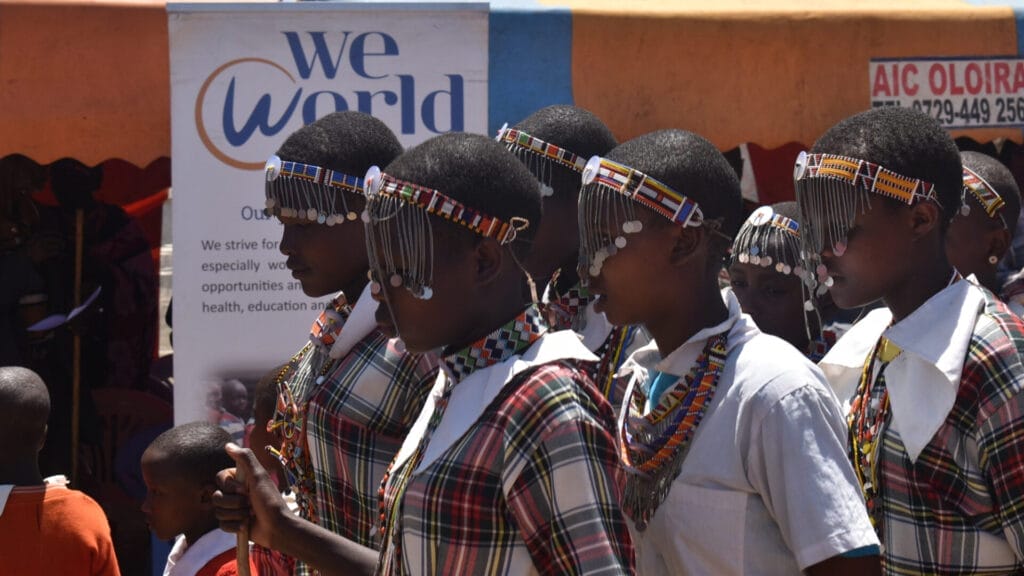
Regarding climate change, in Isiolo County we are committed towards ending drought emergencies, supporting resilient livelihoods and drought risk management programs in cooperation with the National Drought Management (NDMA). The implemented actions aim to increase resilience to acute drought and climate change in the arid and semi-arid areas, by providing water installations for local food production to prevent food crises and reduce conflict between farmers and pastoralists. Around 30,000 people who were or are facing food insecurity or are at risk of it because of climate shocks and conflicts benefit directly from our interventions. Awareness and advocacy actions for behavioural change in social norms related to a balanced nutrition are at the centre of our interventions, together with the establishment of a data nutrition information platform to reduce food insecurity in Isiolo County.
In Kwale County, insecurity has risen steadily together with reported cases of extremism and radicalization, especially cross-border. In such a complex context, and in the framework of our Kujenga Amani Pamoja project, we actively practice and disseminate learning on building peace, preventing conflicts, and promoting inclusion within peace-cantered Swahili cultural practices in Kenya, in collaboration with youth-led networks and organizations (formal and informal), reaching about 12,100 direct beneficiaries.
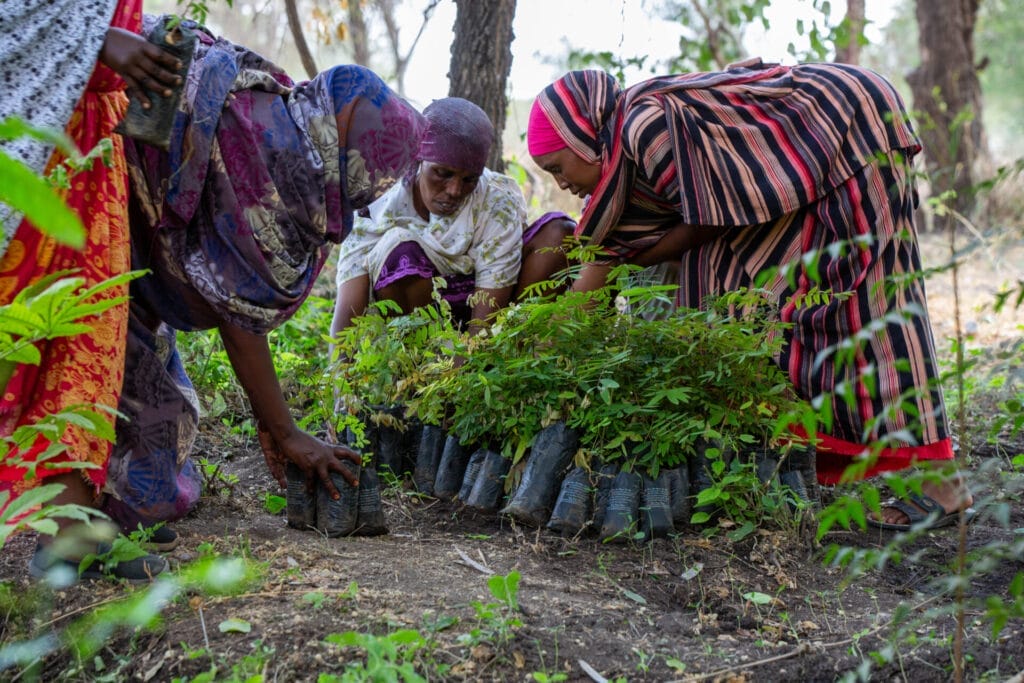
WeWorld interventions in Kenya are possible thanks to the support of European Union, Education Above All Foundation, Provincia Autonoma di Bolzano, Regione Emilia-Romagna, Cariplo Foundation, Regione Lombardia, ICT Genesia, IVECO and thousands of private individuals and families who support our projects.
The context In Kenya, despite a favourable gender equality legal framework, serious inequalities between men and women persist, especially in…
Discover moreThe context Only a slim majority (53%) of Kenyan citizens know about climate change, however of those who were aware…
Discover morePAMOJA TUDUMISHE ELIMU: Together to strengthen Quality Education and Children Retention project aims at engaging and retaining students who are…
Discover moreThe project WORLD aims at encouraging intercultural dialogue with third countries and increasing tolerance through online people-to-people interactions, building on digital, youth-friendly technologies. The project…
Discover moreThe context Kenya Despite the sustained economic growth in the last few years, Kenya is still faced with acute socio-economic…
Discover moreWeWorld intervention in Migori and Homa-Bay Counties aims at contributing towards the realization of an Enhanced Access to Quality Education…
Discover moreWeWorld’s intervention in Isiolo county aims to increase resilience to acute drought and climate change in the arid and semi-arid…
Discover more